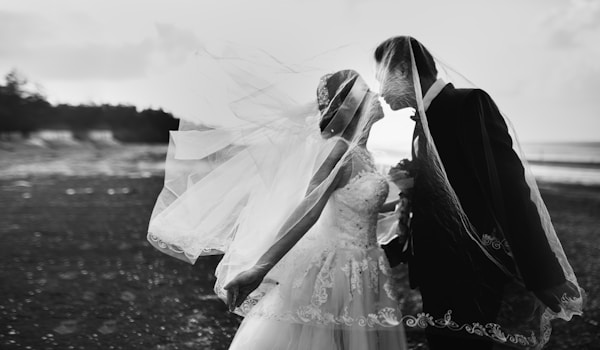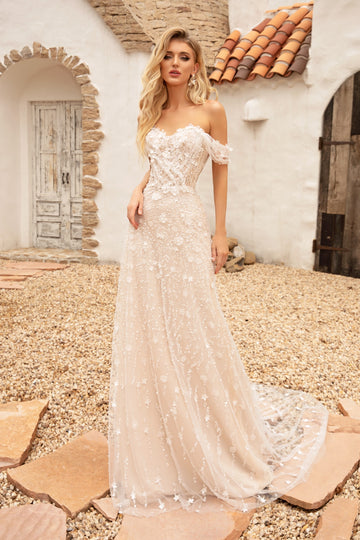How to Choose the Right Needle Size for Sewing Wedding Dress Fabrics
How to Choose the Right Needle Size for Sewing Wedding Dress Fabrics
Sewing a wedding dress is one of the most rewarding yet challenging tasks a seamstress can take on. The fabric used in Wedding dresses can vary significantly, from luxurious silks to delicate lace. One of the essential considerations in this process is knowing how to choose the right needle size for sewing wedding dress fabrics. This article will guide you through selecting the appropriate needle size, ensuring a smooth sewing experience that respects the delicate nature of wedding gown fabrics.
Understanding Needle Sizes
Needle sizes can be confusing, especially for those new to sewing. Needles are categorized by both their diameter and their type. For wedding dress fabrics, it’s crucial to select the right size and type to avoid damaging the material. Typically, needle sizes range from 60 (very fine) to 110 (very heavy).
Needle Size Chart for Wedding Dress Fabrics
| Fabric Type | Recommended Needle Size | Needle Type |
| Silk | 60/8 to 70/10 | Universal or Sharp Needle |
| Tulle | 60/8 | Ballpoint Needle |
| Lace | 70/10 to 80/12 | Universal Needle |
| Organza | 70/10 | Universal Needle |
| Satin | 70/10 to 80/12 | Universal Needle |
| Georgette | 70/10 | Universal or Sharp Needle |
As you can see, the choice of needle size varies depending on the fabric type. Understanding these details will help you to make a more informed decision when sewing your wedding dress.
Types of Needles for Wedding Dress Fabrics
Each type of needle serves a specific purpose, which can significantly affect your sewing success. Here are some needle types that you may consider:
- Universal Needle: Suitable for a wide range of fabrics, including cotton, polyester, and blends. It works well for most wedding dress fabrics, especially if they are less delicate.
- Sharp Needle: Ideal for woven fabrics and delicate materials, this needle type makes precise stitches and prevents snagging.
- Ballpoint Needle: Designed for knit fabrics, its rounded tip allows it to pass between the fibers, preventing damage. This is particularly useful when sewing tulle.
- Embroidery Needle: If your wedding dress features embroidery or embellishments, this needle helps handle thicker threads while preventing breakage.
Factors to Consider When Choosing Needle Size
When deciding on the needle size, consider the following factors:
- Fabric Weight: Heavier fabrics require larger needle sizes, while lighter fabrics necessitate smaller needles. For instance, if you're working with satin, a size 70/10 or 80/12 needle would be appropriate, but for delicate silk, opt for a 60/8.
- Fabric Type: Different fabrics react differently to needle penetration. For example, while a sharp needle is ideal for embroidery, a ballpoint needle is best for knitted fabrics.
- Thread Type: The type of thread you're using affects the needle size as well. A thicker thread requires a larger needle to accommodate it.
- Sewing Machine Type: Ensure that the needle you choose fits the sewing machine's specifications. Some machines may handle specific needle types better than others.
Preparing for Sewing
Before starting to sew your wedding dress, take the time to prepare. This preparation includes:
- Testing Stitches: Always test your chosen needle and thread on a scrap piece of the same fabric. This test helps ensure that you achieve the desired stitch quality.
- Adjusting Tension: Pay attention to the tension settings on your sewing machine; different fabrics may require adjustments for optimal results.
- Cleaning Your Machine: A clean machine operates smoothly, reducing the risk of snags or uneven stitches.

Conclusion
Choosing the right needle size for sewing wedding dress fabrics is crucial for achieving a professional-looking gown. By understanding the various needle types, sizes, and considering the specific requirements of different fabrics, you can ensure that your sewing process is harmonious and successful. Remember to always perform a test stitch on fabric scraps and adjust your machine settings as necessary. With the right tools and knowledge, creating a beautifully crafted wedding dress can be a joyful and fulfilling journey.
When sewing Wedding gowns, remember that the needle is an essential part of the process. Take the time to choose wisely, as this small yet significant detail can make all the difference in the quality of your work.
